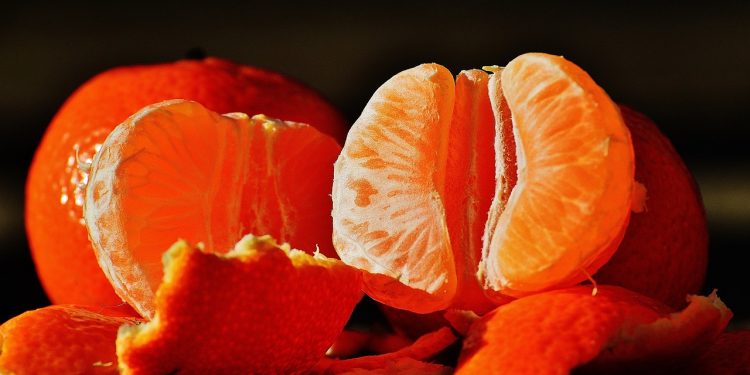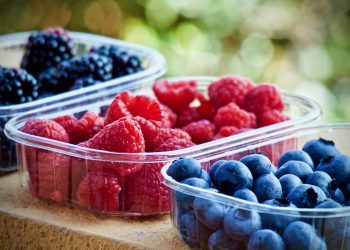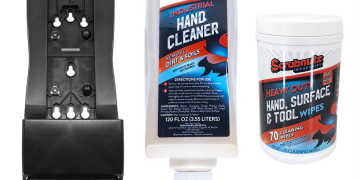Seasonal allergies can turn the most beautiful time of the year into a constant battle with sneezing, watery eyes, and congestion. While medications can provide relief, your diet also plays a pivotal role in managing allergy symptoms. By focusing on specific nutrients and foods, you can support your immune system, reduce inflammation, and make allergy season more manageable. Here are nutrition strategies to help combat seasonal allergies.
The Role of Diet in Allergies
Allergies occur when the immune system overreacts to harmless substances, such as pollen, triggering the release of histamine and other chemicals that cause symptoms. A nutrient-rich diet can strengthen the immune system and reduce the severity of these reactions.
Load Up on Vitamin C
Vitamin C is a natural antihistamine that can help reduce the amount of histamine released by the body, alleviating symptoms like runny nose and itching.
Foods Rich in Vitamin C:
- Citrus fruits like oranges, lemons, and grapefruits.
- Bell peppers, which contain more vitamin C than most fruits.
- Strawberries, kiwi, and pineapple.
- Leafy greens such as spinach and kale.
How to Incorporate Vitamin C:
- Start your day with a smoothie containing citrus fruits and spinach.
- Snack on bell pepper strips with hummus.
Embrace Omega-3 Fatty Acids
Omega-3 fatty acids have anti-inflammatory properties that can help reduce swelling and irritation caused by allergies. They also support overall immune health.
Best Sources of Omega-3s:
- Fatty fish like salmon, mackerel, and sardines.
- Plant-based options like chia seeds, flaxseeds, and walnuts.
- Algae-based supplements for vegans.
Easy Ways to Add Omega-3s:
- Add flaxseed meal to your morning oatmeal or smoothies.
- Incorporate fatty fish into your weekly meal plan.
Boost Your Quercetin Intake
Quercetin, a plant flavonoid, is known for its antihistamine and anti-inflammatory effects. It can help stabilize mast cells, preventing the release of histamine.
Foods High in Quercetin:
- Apples, especially with the skin.
- Onions, particularly red onions.
- Berries like blueberries and blackberries.
- Broccoli and leafy greens.
How to Use Quercetin-Rich Foods:
- Include a sliced apple with your breakfast or as a snack.
- Add onions to soups, salads, and stir-fries.
Don’t Overlook Probiotics
A healthy gut microbiome is essential for regulating the immune response and reducing allergy symptoms. Probiotics, or beneficial bacteria, can help balance the gut and strengthen immunity.
Sources of Probiotics:
- Fermented foods like yogurt, kefir, sauerkraut, and kimchi.
- Miso and tempeh.
- Probiotic supplements, particularly those containing Lactobacillus and Bifidobacterium strains.
Incorporating Probiotics:
- Enjoy a serving of yogurt topped with fresh fruit for breakfast.
- Add a side of kimchi or sauerkraut to your meals.
Include Anti-Inflammatory Spices
Certain spices have powerful anti-inflammatory and antioxidant properties that can help reduce allergy symptoms.
Beneficial Spices:
- Turmeric: Contains curcumin, which reduces inflammation.
- Ginger: Helps soothe nasal passages and reduce swelling.
- Cinnamon: Offers antioxidant support.
How to Use Spices:
- Brew a soothing turmeric latte with plant-based milk.
- Add freshly grated ginger to teas, soups, and stir-fries.
Stay Hydrated
Hydration is essential for keeping mucus thin and helping the body flush out allergens. Dehydration can exacerbate allergy symptoms, leading to congestion and discomfort.
Tips for Staying Hydrated:
- Drink water consistently throughout the day.
- Include hydrating foods like cucumbers, watermelon, and celery in your diet.
- Sip on herbal teas, such as peppermint or chamomile, which also have soothing properties.
Limit Histamine-Rich Foods
Certain foods naturally contain histamine or trigger its release in the body, which can worsen allergy symptoms.
Foods to Watch Out For:
- Aged cheeses and cured meats.
- Fermented products like pickles and alcohol.
- Certain fruits, such as bananas, avocados, and tomatoes.
How to Manage:
- Track your symptoms to identify if any foods worsen your allergies.
- Limit high-histamine foods during peak allergy season.
Add Local Honey
Though not a scientifically proven remedy, many people believe consuming local honey can help desensitize the body to local pollen. It’s thought that small amounts of pollen in the honey may help reduce allergic reactions over time.
How to Use Local Honey:
- Stir a teaspoon of honey into herbal tea or drizzle it over oatmeal.
- Use honey as a natural sweetener in baked goods.
Incorporate Vitamin D
Vitamin D plays a critical role in modulating the immune system. Low levels of vitamin D have been linked to increased allergy symptoms.
Sources of Vitamin D:
- Fatty fish like salmon and tuna.
- Fortified foods such as plant-based milks and cereals.
- Safe sun exposure for natural synthesis.
How to Ensure Adequate Intake:
- Include vitamin D-rich foods in your diet daily.
- Consider supplements if you have low levels, as confirmed by a healthcare provider.
Avoid Processed Foods
Highly processed foods can increase inflammation and exacerbate allergy symptoms. Focus on whole, minimally processed ingredients to support overall health.
Foods to Focus On:
- Fresh fruits and vegetables.
- Whole grains like quinoa, brown rice, and oats.
- Lean proteins and healthy fats.
Simple Swaps:
- Replace packaged snacks with fresh fruit or nuts.
- Choose whole-grain bread over refined white bread.
Meal Planning for Allergy Relief
Planning your meals can help ensure you’re consistently incorporating allergy-friendly foods into your diet.
Sample Day:
- Breakfast: Greek yogurt with berries, a drizzle of local honey, and flaxseeds.
- Lunch: Quinoa salad with spinach, chickpeas, avocado, and a turmeric dressing.
- Snack: Apple slices with almond butter.
- Dinner: Baked salmon with roasted broccoli and sweet potatoes.
- Hydration: Peppermint tea or infused water with lemon and cucumber.
By making strategic dietary choices, you can alleviate the burden of seasonal allergies and improve your overall quality of life. Consistency and variety are key, so focus on building a balanced, nutrient-rich diet to support your body during allergy season and beyond.










